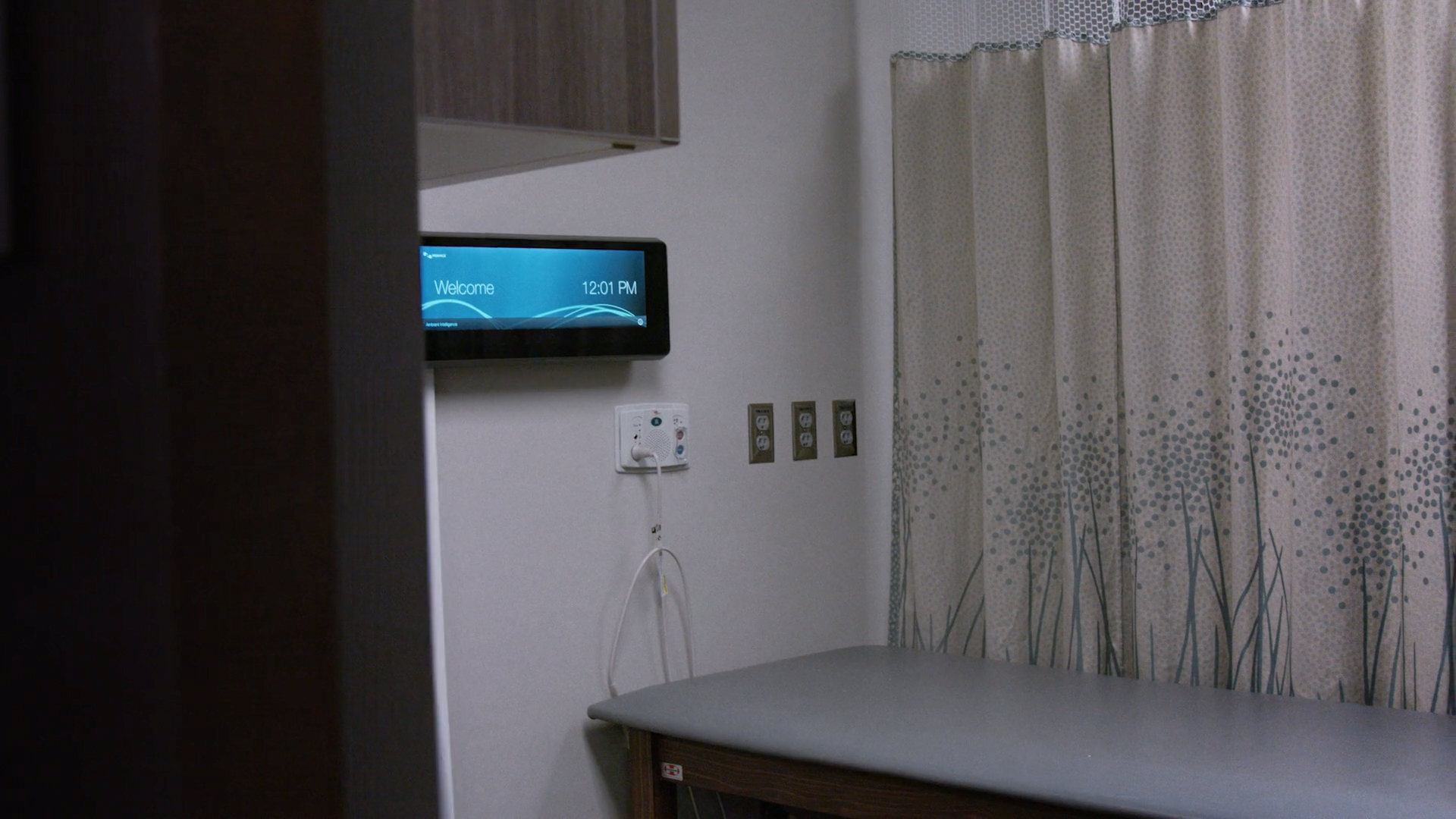
Nuance’s Dragon Ambient eXperience system is installed in a clinic. The voice recognition system automatically populates clinicians’ notes. Photo credit: Nuance
Microsoft is acquiring voice recognition company Nuance Communications as it competes with other cloud companies for a share of the healthcare market.
It plans to buy the company for a total of $19.7 billion in an-all cash deal, including Nuance’s debt. The deal was priced at $56 per share, up 23% from Nuance’s closing price on Friday.
The deal will be Microsoft’s largest since it paid $26.2 billion for LinkedIn. It’s expected to expand Microsoft’s addressable market for healthcare to nearly $500 billion, while giving Nuance the opportunity to scale globally, Microsoft Executive Vice President of Cloud and AI Scott Guthrie said in an investor call on Monday.
It will also give Microsoft a leg up as it faces cloud competitors Google and Amazon, who are also striking deals with hospitals and expanding their reach into healthcare.
“I think Microsoft has stuck to their knitting of being a complementary technology,” said Nathan Ray, director of healthcare and life sciences for consulting firm West Monroe.

A Deep-dive Into Specialty Pharma
A specialty drug is a class of prescription medications used to treat complex, chronic or rare medical conditions. Although this classification was originally intended to define the treatment of rare, also termed “orphan” diseases, affecting fewer than 200,000 people in the US, more recently, specialty drugs have emerged as the cornerstone of treatment for chronic and complex diseases such as cancer, autoimmune conditions, diabetes, hepatitis C, and HIV/AIDS.
He noted Amazon’s recent push to offer its own telehealth platform and at-home visits as a covered benefit, putting it in competition with some telehealth startups.
“It was just a natural fit for how they are approaching the market which isn’t to displace or take on a provider, but to provide that infrastructure,” he said.
Burlington, Mass.-based Nuance develops speech-recognition tools, primarily for healthcare. For example, it is developing a system that pulls information from information from a physician’s conversation with a patient into a clinical note. Physicians can also use the voice-based system for patient consent, document signing, and medication orders.
Nuance has been in healthcare for about two decades, starting with dictation software and transcription. After the advent of meaningful use, it became a tool for clinical documentation. In the future, the company will be able to create more conversational models from the data it has collected, Ray said.
The company claims its solutions are used by more than 10,000 U.S. hospitals and more than half of all physicians across the U.S. It’s one of the most commonly used clinical dictation services.
Building on a past partnership
The acquisition would build on a partnership between Nuance and Microsoft dating back to 2019, where they worked together to develop Nuance’s ambient clinical intelligence software.
That partnership evolved after the start of the pandemic. As patients shifted to telehealth visits in lieu of in-person visits, Nuance integrated with video conferencing software Microsoft Teams to support virtual consults, Nuance CEO Mark Benjamin said in an investor call.
The sudden shift to telehealth has changed workflows, and in some cases, created new hurdles for care delivery, Benjamin wrote in a blog post
“As a result, there is an incredible demand for digital platforms that reduce administrative burdens, ensure accurate documentation and financial integrity, open the digital front door, and improve the quality of life for healthcare professionals and the overall patient experience,” he added.
Nuance will become part of Microsoft’s cloud business, and Benjamin will continue to lead the company.
Last year, Nuance brought in a total of $1.48 billion in revenue, a slight decrease from 2019. Its gross profit increased to $840 million.
Its largest segment, healthcare, brought in $915 million in revenue, down slightly from the prior year. The company is shifting clients from its lower-margin medical transcription and EHR implementation services to its higher-margin cloud-based solution, according to its most recent annual filing.
Microsoft expects the deal will be minimally dilutive in 2022, and become accretive in 2023.
The deal has been approved by both companies’ boards, but it must meet certain regulatory approvals and get the green light from Nuance’s shareholders. It’s expected to close by the end of the year.
This article has been updated with comments from Nathan Ray.













